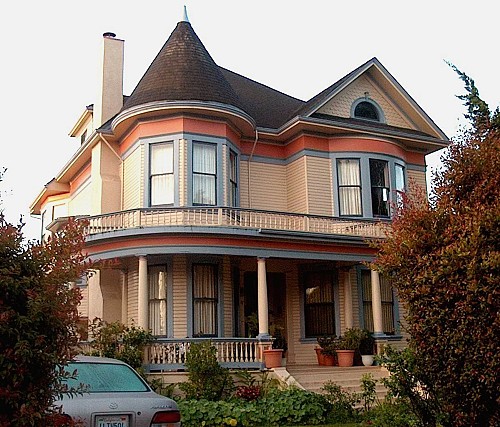4 Potential Problems with Old Homes - and Why We Love Them Anyway

Either you love them to pieces or you just don’t get what all the fuss is about. We’re talking old houses – not just pre-owned, resales, or whatever they may be called – but old as in “built long before you and possibly even your parents were born.” True, older properties tend to come with their share of problems. If you’re considering the purchase of a vintage dwelling, do make your offer conditional on a professional home inspection. That way you know what you’ll be working with … or worst-case scenario, you can walk away from the deal. But venerable houses also offer an awful lot to love. Find out the facts, both good news and bad.
Potential Problems with Old Houses
Outdated Wiring. Consider yourself lucky if your house’s old-school wiring only causes minor inconvenience (for example, you need to hire an electrician for a little upgrading before you can make your dream of a state-of-the-art home entertainment center come true). Hazardous systems like early 20th century knob-and-tube wiring must be completely replaced, in most parts of the country, to bring your home up to code).
Toxic Materials. Insulation and fireproofing made of asbestos, and paint or plumbing pipes which contain lead, are materials that were widely utilized in home construction prior to the late 1970s. Although eventually their use in new houses was banned as potential health threats, owners of existing homes were not required by law to remove asbestos or lead.
Foundation. Foundations have an annoying tendency to various problems as they age, such as cracking due to excessive moisture, seismic activity, freeze-thaw cycle, or just plain settling. To make matters worse, your old foundation may be made of a poorer quality concrete mix than is currently used, with an overload of improperly cleaned aggregate and no rebar for support. When this is the case, prioritize: invest in foundation repair or replacement before any cosmetic home improvement.
Historic Status. A house that has been officially designated as historic is subject to certain restrictions. According to the guidelines for your area and the reason your particular residence has received its designation -- architectural style, status as home of a famous person, etc. – essential repairs are permitted, but not completely rebuilding or replacing many features – or adding extra square footage to the structure. (On the other hand, ownership of your historic home may entitle you to a nice tax break.)
In Praise of Older Homes
Established Surroundings. Obviously, a house that’s been around for a while is more likely to be in an established neighborhood, complete with an infrastructure which is already solidly in place. In addition, it will frequently offer the benefit of a large outdoor space with mature trees and plantings.
Solid Construction. Older homes often have the advantage of quality construction and craftsmanship, when compared to more modern “cookie cutter” residences. (However, custom-built new houses will tend to rival or even surpass older ones. It depends on a variety of factors, ranging from the materials and skill that went into the building, to the wear and tear your local weather conditions have inflicted over the years.)
Cachet. The French have a word for the extra-special bonus you receive when you live in a vintage home: cachet, which is literally translated as “a mark of distinction.” We’d define it as a certain unique elegance. Cachet comes partly from original architectural details such as gorgeous wooden moldings, stained glass windows, and wall lighting sconces. Its source is also the patina of well-aged hardwood floors and the distinctive character of wavy glass.
Memories. Buying a bargain fixer-upper has long been a dream for a certain breed of house purchaser. Now some brave souls are adding a new tweak; they take on the project of buying and restoring an old dwelling they are personally attached to – perhaps their grandparents’ former home, where they spent happy childhood summers. That’s what we call a true labor of love.
Laura Firszt writes for networx.com.
Updated June 25, 2018.
Looking for a Pro? Call us (866) 441-6648

Average Costs
Related Experiences

Emergency Plumbing Repair Of Collapsed Sewer Pipe

A Professional, Punctual Back Door Replacement



